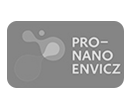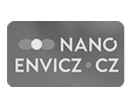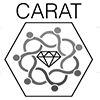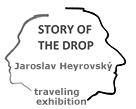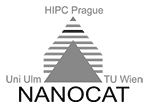Research Interests of Department of Electrochemistry at the Nanoscale
The Department of Electrochemistry at the Nanoscale focuses its research activities on electroactive molecular systems from the perspective of nanoscale dimensions. The main theme of our activities is the fundamental electrochemical research at electrified interfaces (electron transfer kinetics and redox mechanisms) with the aim to understand charge transfer-initiated processes at the molecular level with focus on the systems with specific redox abilities - molecules, which have been designed for various applications including molecular electronics, energy harvesting, development of electrodes and sensors, molecular switches, supramolecular carriers, new molecular catalysts and bioactive compounds. Research in the Department involves elucidation of the structure-reactivity relationship on a single molecule level and in the nanoscale assemblies, determination of the redox mechanisms and in-situ characterization of (radical) intermediates. Members of the Department are involved in the advancement of the electrochemical (e.g. fast FFT and impedance spectroscopy) techniques, in-situ spectro-electrochemical techniques (e.g. UV-Vis, FTIR/NIR and ECD), AFM and STM imaging and related methodologies for charge transport studies at the single molecule level (conductance and thermopower measurements using the metal-molecule-metal break junction methodology).
The research directions are:
- Fundamental electrochemical research of the structure-redox activity relationship of molecules with targeted properties at electrified interfaces (configurational, chiroptical and supramolecular switches, sensors and bioactive compounds).
- Investigation of charge transfer and charge transport phenomena at the single molecule level and in nanoscale assemblies: molecular conductors, alligator clips and switches for molecular electronics.
- Investigation of new 2D molecular architectures at electrified interfaces and their application (molecular sensors and biosensors, low-dimensional molecular structures for enhanced electronic communication, interaction of bioactive compounds with self-organized biomacromolecules).
- Fundamental charge transfer and transport studies in new donor-acceptor systems (intramolecular electronic interaction, localization and delocalization of electron density, interacting and non-interacting redox centers, redox activation of metal-complex catalysts, innocent versus non-innocent ligands).
- Mechanistic studies of molecules with targeted properties involving detection of reaction products and intermediates (in-situ spectroelectrochemical methods (UV-VIS, FTIR, NIR and ECD).
- Understanding charge transfer, charge transport and dielectric properties of interfaces between electrolytes and novel electrode materials. Application of 3D printed electrochemical platforms in sensing and removal of problematic substances from the environment.












